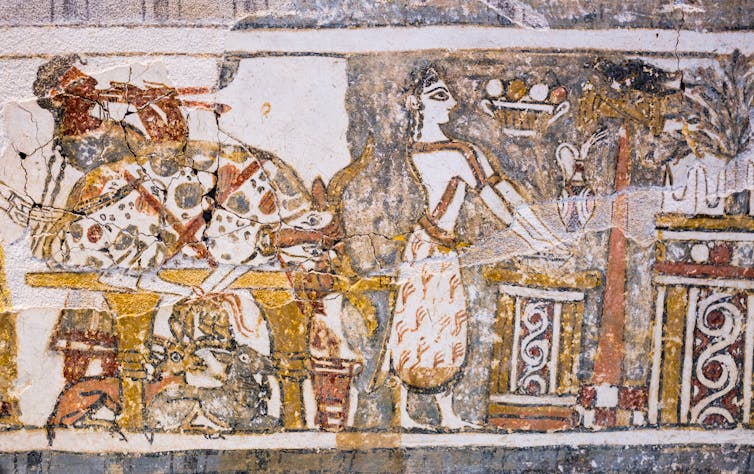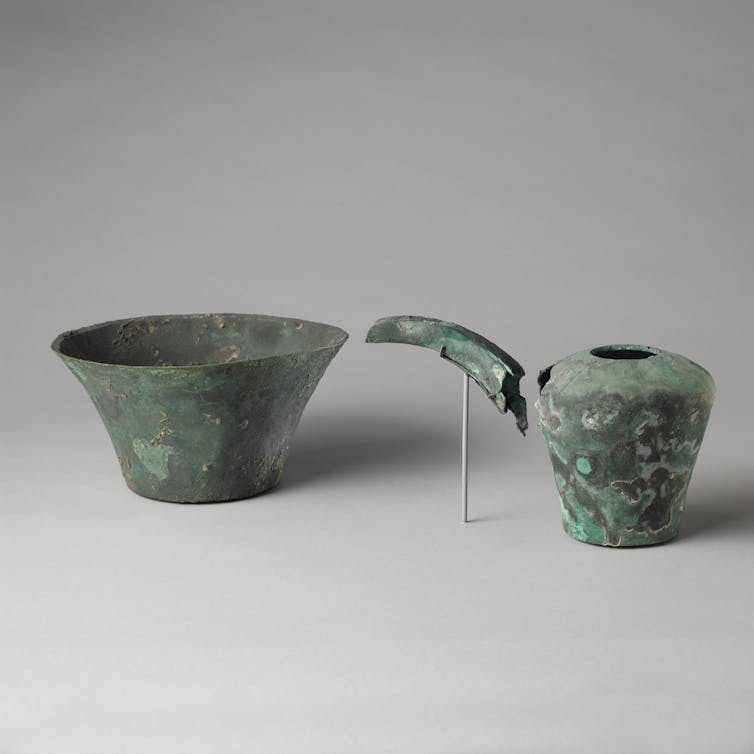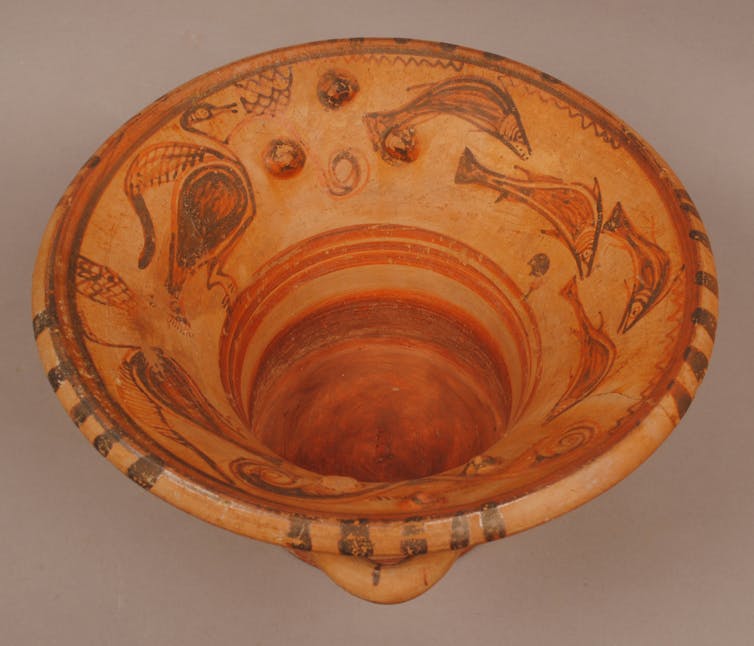
COVID-19 poses massive challenges nationally and globally when it comes to socio-economic inequality. It has hit the vaccine rollout especially hard, threatening new and potentially more lethal variants, while low-risk people are being vaccinated in rich countries well ahead of high-risk people in poorer countries.
Even before the pandemic was officially declared on March 11, 2020, socio-economic inequality was flagged as one of the greatest threats to the global economy.
The pandemic has only accelerated socio-economic inequality, impacting women and racialized people especially hard.
But why is socio-economic inequality so threatening to human societies and how can archeology inform public policies for mitigating it?
As an archeologist who has spent the past 13 years excavating and studying material culture at the site of Eleon, an ancient town in central Greece, I study the effects of a socio-economic collapse that took place over 3,000 years ago. By excavating and interpreting the human past, I believe that we can avoid past mistakes and build a more inclusive future.

Inequality in Mycenaean Greece
Long before Athens and Sparta were major players, Greece was home to the Mycenaeans, a Late Bronze Age culture comprising small city-states each ruled by a wanax (king).
The wanakes (kings) established their authority at feasts, where the wanax and other elites performed sacrifices to the gods. These feasts manifested and reinforced social inequalities within Mycenaean society. Inequalities between participants were emphasized by the rooms they could access within the palaces, the clothes they wore, the food they ate and even what they drank from.
Palace-sponsored feasting required contributions from individuals and communities. This had an effect on agricultural strategies, which favoured short-term intensification in production over long-term resilience.
This increased the Mycenaean elites’ vulnerability to climate change, disease and warfare. Ultimately, the Mycenaean city-states collapsed around 1200 BCE. The palaces burned and the wanakes disappeared from Greece for good.
While we are unable to identify a singular cause for the collapse of the Mycenaean Greek palatial culture, it is clear that the one per cent paid the highest price when the system went bust. A growing number of archeological studies across the globe question the economic and social impact of collapse on the 99 per cent.
The degree to which collapse disproportionately impacted elites has even led to the hypothesis that class warfare played a role in the fall of the Mycenaean palaces.
Handwashing and the performance of inequality
In a recent paper fellow archeologist Bartłomiej Lis and I examined one element of palace-sponsored feasting: handwashing.
Our research identifies handwashing equipment archeologically for the first time through a detailed study of abrasion patterns on clay vessels. We trace the origins of this equipment to Egypt, where similar metal handwashing vessels appear during the third millennium BCE.

Mycenaean elites maintained a monopoly over the earliest bronze handwashing equipment. Vessels were used for a form of purification that required both metal vessels and ritual knowledge to properly perform, preventing the custom from spreading outside the palatial elite.
Other forms of daily handwashing likely took place that did not require this equipment. Local elites performed handwashing with metal vessels to highlight their own privileged socio-economic status. Think of this showboating like gathering a few of your close friends and flying them to a tropical island for your birthday in the middle of a pandemic.

Our research found that post-collapse, Greek handwashing equipment became widely available, now manufactured in cheap clay versions. This demonstrates that some elites with knowledge of this handwashing custom survived the collapse. It also shows that the custom was no longer restricted to a specific social class. This shows how collapse functions not only to redistribute wealth and political authority, but also technology and information monopolized by elites.
While these may seem like positives, we should not forget the economic devastation brought by the collapse. Most Mycenaean infrastructure fell into disuse, settlements were abandoned and population levels plummeted. These impacts were felt for centuries.
Back to the future
The Mycenaean collapse serves as a warning: unchecked growth of socio-economic inequality increases the vulnerability of complex societies to collapse. However, the same data argues that reducing inequality can make economies more resilient to future climate challenges.
Geoffrey Kron, an expert in Greek and Roman economics, has shown how both in ancient Greece and the United States increasing economic inequality can be linked with authoritarian governments and the erosion of democracy. Governments should heed the growing socio-economic inequalities laid bare by COVID-19. Those that fail to address growing inequalities do so at their own peril.
It is easy to think that handwashing is accessible to all today, but COVID-19 calls attention to communities both within Canada and around the globe where clean water is not a given. In these communities, even the most basic defence against the novel coronavirus is a daily challenge.
While there are positive signs that socio-economic inequality is being recognized nationally in Canada and the U.S., more can be done by all governments to mitigate socio-economic inequality starting with investing in remote and traditionally disadvantaged communities.
In doing so, we can truly build back better.
Trevor Van Damme receives funding from the Social Sciences and Humanities Research Council of Canada.
This article was originally published on The Conversation. Read the original article.







